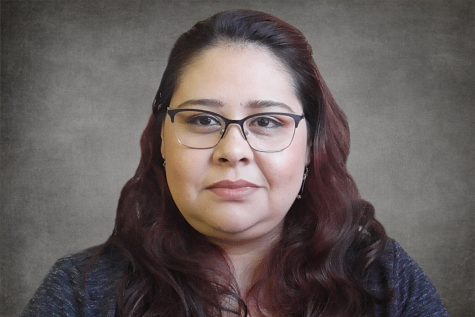Advice on healthy food options
May 1, 2019
Most of the time academic hurdles take over college students’ lives, and they often place their physical and mental health in the least important rank.
Unfortunately, when students are busy with school or work, they adopt a mentality of “out of sight, out of mind” meaning if something doesn’t hurt, there is no reason for them to take time out of an overloaded schedule to seek preventive care. Onlinecolleges.net lists lack of sleep, poor eating habits and stress as the top health concerns for college students.
While nutrition and exercise are not a priority for students, complying with school obligations are. Often, this behavior leads to sleep deprivation and insufficient dental hygiene. Registered dental hygienist Gerardo Reynaga said, “When students have to stay up too late, they often forget to brush their teeth. Not only do they ignore the bacteria growing in their gums, but they also consume sugary drinks throughout the night. Periodontitis is a link to diseases that will affect students in the long term such as Alzheimer’s, cancer, respiratory disease and diabetes.
“Oral negligent health care is also associated with depression,” Reynaga said. According to the 2015 College Students Health Survey from the University of Minnesota, more students have access to health insurance than previous years, fewer student use tobacco and the rates for high-risk drinking behavior dropped — although it remains a problem. Mental health continues to be a public health issue on campus and there has been an increase in the number of women who reported they had been a victim of sexual assault.
“University of Minnesota students demonstrated they have the talent to be successful here.”
“When they aren’t successful, it is often because of a variety of issues that may impact them. Mental health problems, alcohol use, illness, injuries or other challenges life brings them,” Danita Brown Young, vice provost for student affairs and dean of students for the university said.
Contra Costa College is not an exception as mental health is a big problem among the student community. CCC offers help for those issues through counseling and the Student Wellness Program.
Wellness Program coordinator Elizabeth Bremmer said, “We assist students with mental health problems such as anxiety, childhood trauma, family issues, relationship issues, things that are going on in their personal lives.”
Inadequate physical health is another issue experienced by the college population. Students spend long hours of physical inactivity due to the duration of classes and the time they spend doing school work.
The Contra Costa County Health Services website, cchealth.org, says in 2007, more than half of Contra Costa County adults were either overweight or obese. This was similar to the percent of overweight and obese adults in the greater Bay Area and California.
In 2008–2009, Latino and African American children were more likely to be overweight or obese than children in the county overall. In order to maintain good physical health, experts said students should get enough exercise, practice good eating habits and consult with a physician regularly.
Students in the Contra Costa Community College District have to deal with health inequality issues which is another disadvantage that puts students at a higher risk.
According to cchealth.org in Contra Costa County, greater wealth equates to a longer life. A child born in a low-poverty area in 2000 could expect to live more than six years longer than a child born in a high-poverty area. Life expectancy in low-poverty areas was 81.4 years and 74.9 years in high-poverty areas. African Americans in Contra Costa County had a shorter life expectancy (73.1 years) than any other racial/ethnic group in the county. An Asian/Pacific Islander or a Hispanic baby born between 2005 and 2007 in this county can expect to live more than 12 years longer than an African American baby born at the same time.
Nutrition plays an important role in overall health. What students consume could either strengthen or weaken the immune system. Doctors recommend eating a balanced diet rich in vitamins, magnesium, calcium and iron.
“I often eat healthy food, however, in here junk food is more accessible. It’s easier to find a cheap, unhealthy meal than a healthy one for the same money,” political science major Alfredo Angulo said.
When low-income students struggle to afford the basic foods such as meat, milk, vegetables and fruits, they are prone to contract viral diseases. Missing classes due to illness put students at a higher risk of failing at college. See page B5 for more stories on student health.


